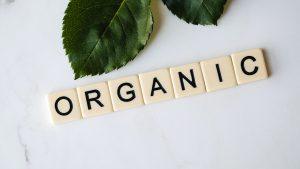Marketing professionals are awesome at what they do. Look at any ad, commercial, or brand label and you’ll see perfectly place words, percentages, and eye-catching pictures to draw your attention. Some of the most successful campaigns are the ones that tug at your heartstrings, bubble up your emotions and impact you in a way that stays in your mind for a long time.
The best example of this, for me, comes from when I was a kid. I can vividly remember the Spaghetti O’s commercial circa 1995 or so. The cartoon Gargoyles was extremely popular at the time and I was obsessed. So, when each can of Spaghetti O’s came with Gargoyles tattoos. I was sold! On the other hand, my mother was anything but sold on the idea of her child only wanting to eat these tomato-y noodles for the rest of her life. That’s JUST an example of good marketing though, don’t you think? Harmless to say the least.
But what happens when good marketing goes bad?
It’s going green… ( Any Twister fans in the house?)
Have you heard of the term greenwashing? Greenwashing is a form of misinformation that is often used to attract an aspiring buyer. It is, in my opinion, an unethical marketing strategy. Companies that utilize the greenwashing language are usually promising to be sustainable, biodegradable, or environmentally friendly but often time fail to meet the promises they make.
In food labels, it’s not easy to spot. But, here is a list of terms that are commonly found on labels (and their definitions) so you can make a better-informed decision on what you buy for your family. The terms below must be verified for a product to claim it.
[Sidebar: Please note that just because a label is greenwashed doesn’t necessarily mean that it’s bad or unhealthy. Honestly, most dietitians out there would tell you that there are no bad foods, just healthier options. Please consult with your doctor or dietitian for professional advice and as always do your research.]
- Natural- usually a product is only natural when nothing artificial or synthetic (including all color additives regardless of source) has been included in or has been added to, a food that would not normally be in that food.
- Humanely raised is not true unless it has the Certified Humane Raised and Handled® logo.
- Cage-free/ Free Range Eggs– Not all USDA-graded eggs are cage-free, and not all cage-free eggs are graded by USDA. But, eggs packed under a USDA Grade Shield and marketed as cage-free must be source-verified by USDA. Free-range eggs are produced by hens that are not only housed in a way that allows for unlimited access to food and water and provides the freedom to roam within the area like cage-free hens but also gives the hens continuous access to the outdoors during their laying cycle.
[another Sidebar: Have you seen the price of eggs? Do you want to know my best-kept secret in Lafayette where the eggs are still $1.50 per dozen?]

- Chemical free– This term is NOT allowed on the labeling of meat products.
- Hormone Free/ No Hormones– Hormones are not allowed in raising pigs or poultry, so therefore, these terms cannot be used unless accompanied by the statement “Federal regulations prohibit the use of hormones.” Federal regulations prohibit the use of hormones.” as well.
- Organic– The FDA does not regulate the use of the term “organic” on food labels. The USDA does regulate this term with the National Organic Program (NOP). But, producers who market less than $5,000 worth of “organic” products annually are not required to apply for organic certification.

Marketing agencies are smart. If they want to convey that a product is “Green” that packaging might be the color green. My advice to you is to look at nutrition labels and not the packaging.
You can also find terms like “eco-friendly” “and “sustainable” on products that aren’t friendly to the environment or made with sustainable practices. Do the best you can with research if that kind of thing is important to you.



















